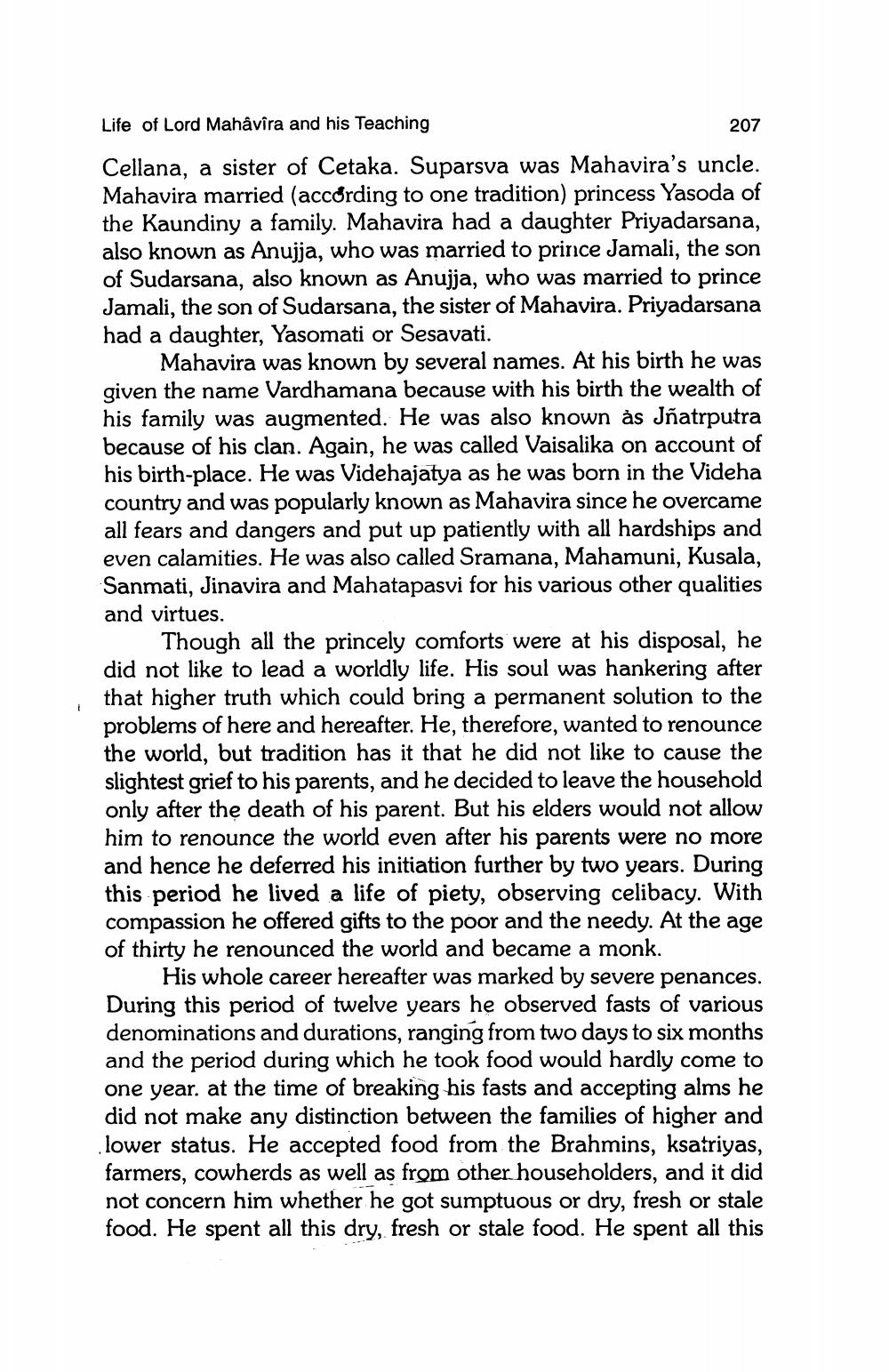________________
Life of Lord Mahavira and his Teaching
207
Cellana, a sister of Cetaka. Suparsva was Mahavira's uncle. Mahavira married (according to one tradition) princess Yasoda of the Kaundiny a family. Mahavira had a daughter Priyadarsana, also known as Anujja, who was married to prince Jamali, the son of Sudarsana, also known as Anujja, who was married to prince Jamali, the son of Sudarsana, the sister of Mahavira. Priyadarsana had a daughter, Yasomati or Sesavati.
Mahavira was known by several names. At his birth he was given the name Vardhamana because with his birth the wealth of his family was augmented. He was also known as Jñatrputra because of his clan. Again, he was called Vaisalika on account of his birth-place. He was Videhajatya as he was born in the Videha country and was popularly known as Mahavira since he overcame all fears and dangers and put up patiently with all hardships and even calamities. He was also called Sramana, Mahamuni, Kusala, Sanmati, Jinavira and Mahatapasvi for his various other qualities and virtues.
Though all the princely comforts were at his disposal, he did not like to lead a worldly life. His soul was hankering after that higher truth which could bring a permanent solution to the problems of here and hereafter. He, therefore, wanted to renounce the world, but tradition has it that he did not like to cause the slightest grief to his parents, and he decided to leave the household only after the death of his parent. But his elders would not allow him to renounce the world even after his parents were no more and hence he deferred his initiation further by two years. During this period he lived a life of piety, observing celibacy. With compassion he offered gifts to the poor and the needy. At the age of thirty he renounced the world and became a monk.
His whole career hereafter was marked by severe penances. During this period of twelve years he observed fasts of various denominations and durations, ranging from two days to six months and the period during which he took food would hardly come to one year. at the time of breaking his fasts and accepting alms he did not make any distinction between the families of higher and lower status. He accepted food from the Brahmins, ksatriyas, farmers, cowherds as well as from other householders, and it did not concern him whether he got sumptuous or dry, fresh or stale food. He spent all this dry, fresh or stale food. He spent all this




